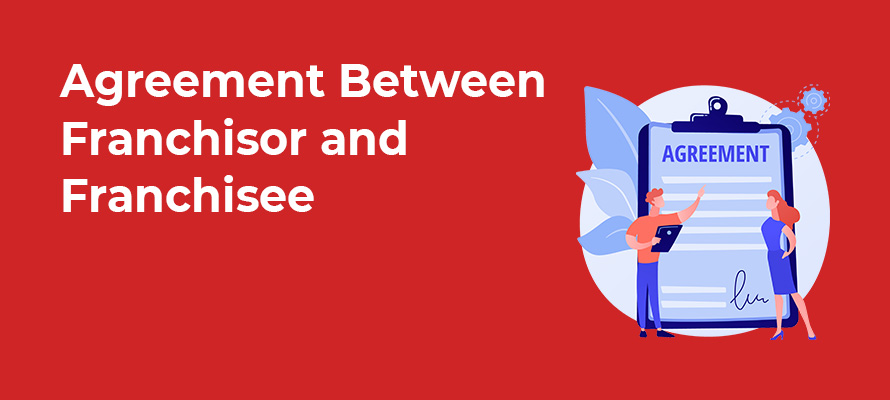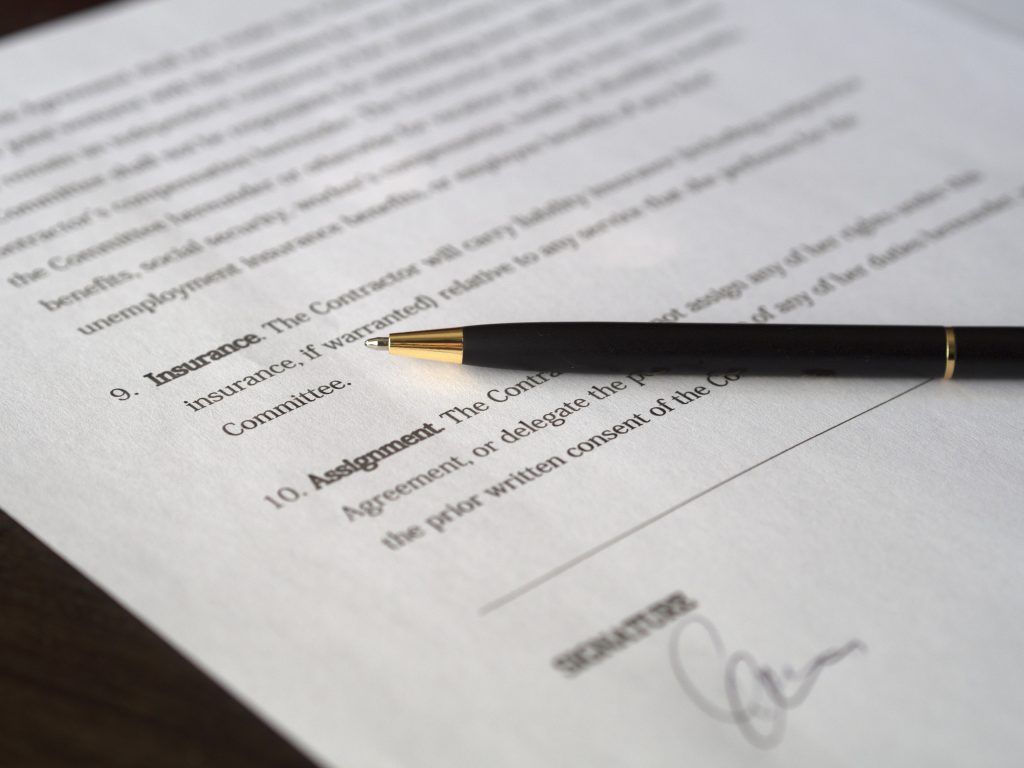What is the Franchise agreement?
A franchise agreement is a legal settlement that shows the franchisor’s terms and circumstances for the franchisee. The franchise agreement indicates the obligations of the franchisor and the obligations of the franchisee as well. The franchise agreement is always signed by the person who is entering the franchise system.
A franchise contract governs the relationship between the franchisee and franchisor that consists of necessary provisions for future actions if needed.
Most franchisees are in search of a proven and profitable system. Existing franchisees are proud of their determination to enter the franchise. Many Successful franchise corporations have realized that the most straightforward strategy to administer is most profit is to have every franchisee on the same program. If they ask questions or considerations, ask the franchise firm, and they offer you a letter of clarification and addressing the items that you will have a problem with.
What are the requirements in the franchise agreement?
There are three general requirements to be considered a franchise:
- The franchisee’s business is concerned with the franchisor’s brand. In franchising, the franchisor and franchisees are sharing a familiar brand name.
- The franchisor exercises control or provides assistance to the franchisee, how it uses the franchisor’s brand name. Because the franchisee is working as an independent contractor and not a joint employer with anyone, those controls generally cover brand standards. They do not extend to the human resources of the franchisee, nor do they continue to how the franchisee manages its business.
- The franchisor receives a specific fee from the franchisee to get the right to enter into the relationship and operate a business using the franchisor’s trademarks or brand name. The cost can be an initial fee, or it can be a continuing fee.
Some fundamental rights and obligations in the franchise agreement
A franchise agreement is a license that shows the rights and obligations between the franchisor and the franchisee. This agreement is made in such a way as to protect the franchisor’s intellectual property and ensure that each of its licensees operates under its brand even though the relationship is in a written agreement that lasts at least 10–20 years.
The agreement must be flexible enough to allow the franchisor to make some modifications, according to him. There are no changes. Franchisees must manage their independently-owned businesses daily by continually meeting brand standards.
Franchise agreement hazards
Franchising is about replicating a company’s brand name, and an agreement that many business decisions that go into creating a franchise system.
Franchise agreement reflects the uniqueness of each franchise offering and needs to explain franchise relationships. Copying another franchise system’s approval is likely the single biggest mistake many new franchises make many times. The length and complexities of a franchise agreement, skillful lawyers, will not be incorporated into significant agreements required by the relationship, such as personal guarantees.
Elements of the franchise agreement
Following are the elements that each franchisor and franchisee have to look at before signing the agreement
Boundaries and territory of franchise
Not every franchise agreement has an exclusive or protected territory, but specifics the territory. Franchisors need to deal with the reservation of rights within a franchisee’s territory.
Each franchise location covers a particular area, which is mentioned in the franchise contract. Other franchisees cannot have their sites within a certain number of miles. This is done to make sure there is not too much competition in the area. This is done to limit sales potential and the success of the franchise location.
Duration of the franchise agreement
The duration of a franchise agreement is about 10 to 20 years. This part of the contract will also speak out in the conditions in case the franchise is sold to someone else, to make sure that any future franchisee is qualified to be an owner. Sometimes, there will be a right that allows the franchisor to buy back the franchise rather than sell it to someone else.
Franchise cost or initial fees of the franchise
Franchisees have to pay an initial or continuing fee to the franchiser to enter the system and remain a franchisee. Agreements include several side fees, such as monthly royalties, buying advertisements, etc. Most franchise systems provide a payment to an advertising or brand fund used by the franchisor to market the brand to the public.
Using trademarks, signs, and logos
The franchisor owner has its unique trademark. This part of the contract outlines the specific ways a franchisee is permitted to use those entities and how they are not allowed to use them.
Opening new physical franchise rules
Every franchise has its own specific rules for the way franchisees must run their units. Franchisees have to find their sites and develop them according to the franchisor’s standards and needs. The franchisor’s role is to approve the location of the franchisee and then approve that the franchisee has built its site to meet design and other brand standards.
Training and support system of franchise
Franchisors have to train new franchisees and give them ongoing support. Franchises are built around uniform business practices. Training will help new franchisees to understand what is expected from them and learn the methods that have given the franchise company success. Support can be in the form of continuing training, discounts on equipment and supplies as well.
Terminating policies of franchise
There are some rules about how a franchise can be renewed and under what conditions it can be terminated. If the franchisor and franchisee conflict, there may be a clause named Arbitration clause that would prevent either side from going to court.
Developing a proper setup of franchise agreements, each of the franchise elements needs to be evaluated carefully. Before having the lawyers begin to draft the agreements, it is essential for the franchisor first to develop its business plan and decide on all of these important issues. They are working with qualified franchise lawyers, the first work with experienced and qualified franchise consultants in crafting their franchise offering.
What will happens if you negotiate any of the terms from the franchise contract?
Many franchisors are not open to negotiating their franchise contracts. We will advise you to have a lawyer who has experience with the franchise and look at potential franchise contracts and give you an honest suggestion about which parts of the agreement may or may not provide an advantage for you in the future.
It is important to note that the franchisor’s primary goal is to contract and protect the franchise’s value and integrity as a whole. If the entire franchise fails, no one can get the benefit. This is the main reason, most franchisors don’t negotiate their franchise contracts, and it may even be unrealistic to expect franchisors to go out of their way to accommodate franchisees.
If you find clauses in the contract that are non-negotiable for you, you can ask your franchiser to find out why those clauses were included and whether the franchisor would consider taking them out of the contract. Still, there are chances that the franchisor will not negotiate on anything. If you feel the agreement is unfavorable and would prevent you from getting a good return on your investment, you can cancel it at the spot.
Always be in touch with your lawyer when signing the contract.
If you want to negotiate even small points in your contract, you should have a lawyer negotiate for you. Lawyers are trained in such a way to handle legal matters and also have more credibility than you do alone. Because it is their duty and profession as well, moreover, negotiations can become more complicated than your experience, so it’s to your advantage to have an expert handling them for you.
Legal help is needed when you are not trying to negotiate changes to the franchise contract. You should consider it part of the cost of the franchise and budget. Having an objective and knowledgeable professional to help you evaluate the deal can save you from making a big mistake. Signing a bad contract can cost you thousands of dollars throughout your ownership, so paying for legal help is a bargain in the long run.
Red flags during reviewing franchise contract
Having a lawyer go over your franchise contract should catch most of these issues, but in the overall franchise acquisition process, some situations should pause. Here are some red flags that should cause you to proceed with caution.
- Don’t rush while signing the contract
- Try to make a discount during price discussion
- Withhold all documents
- Having a list of other franchisees in the case to call them
- Don’t allow to attorney’s involvement















